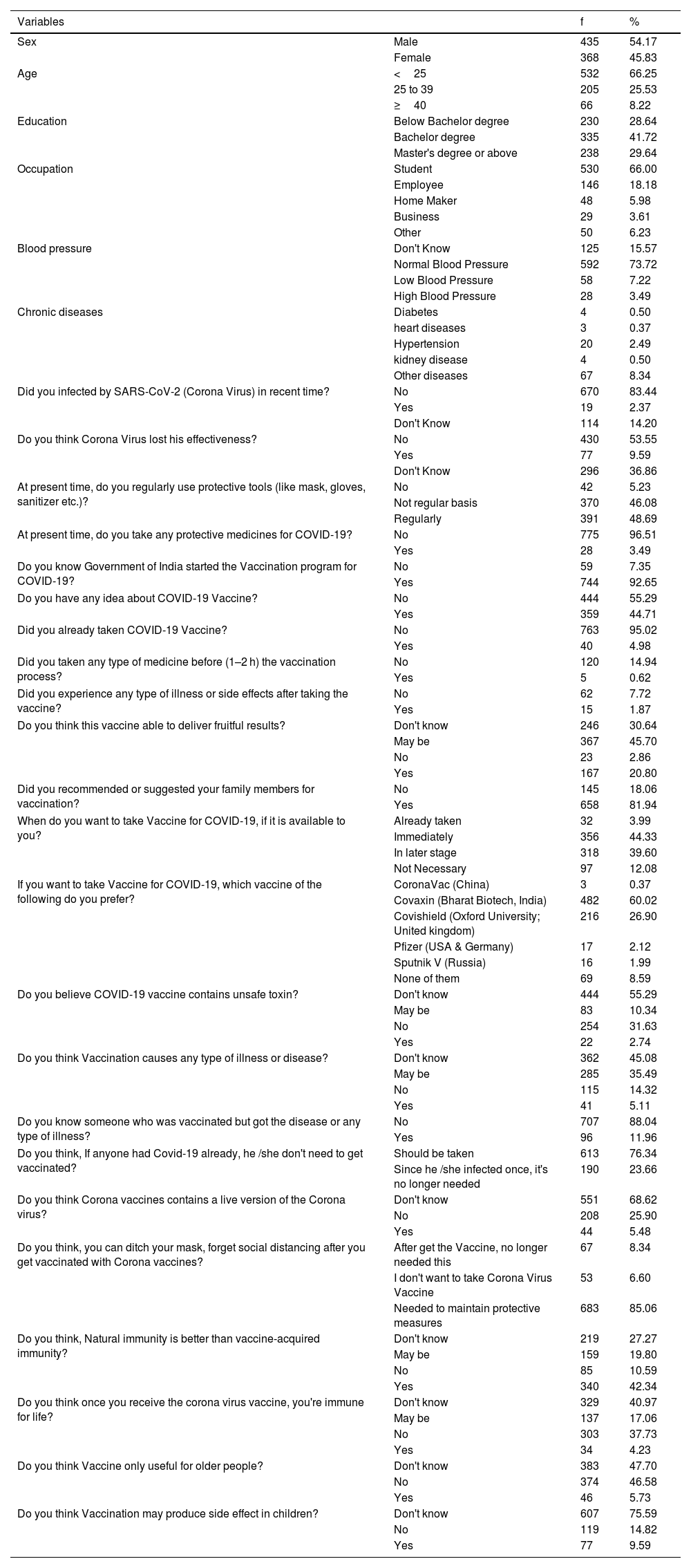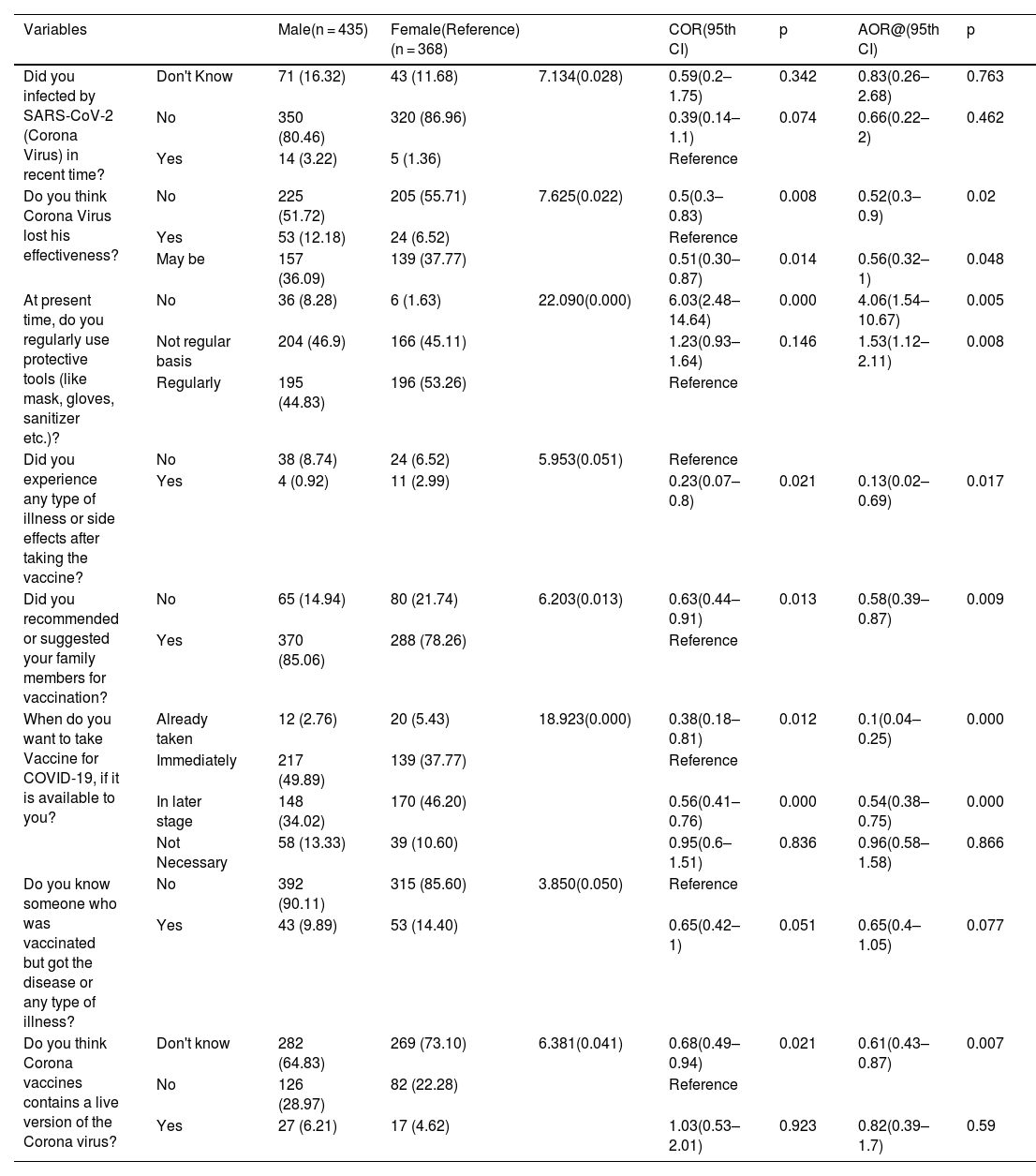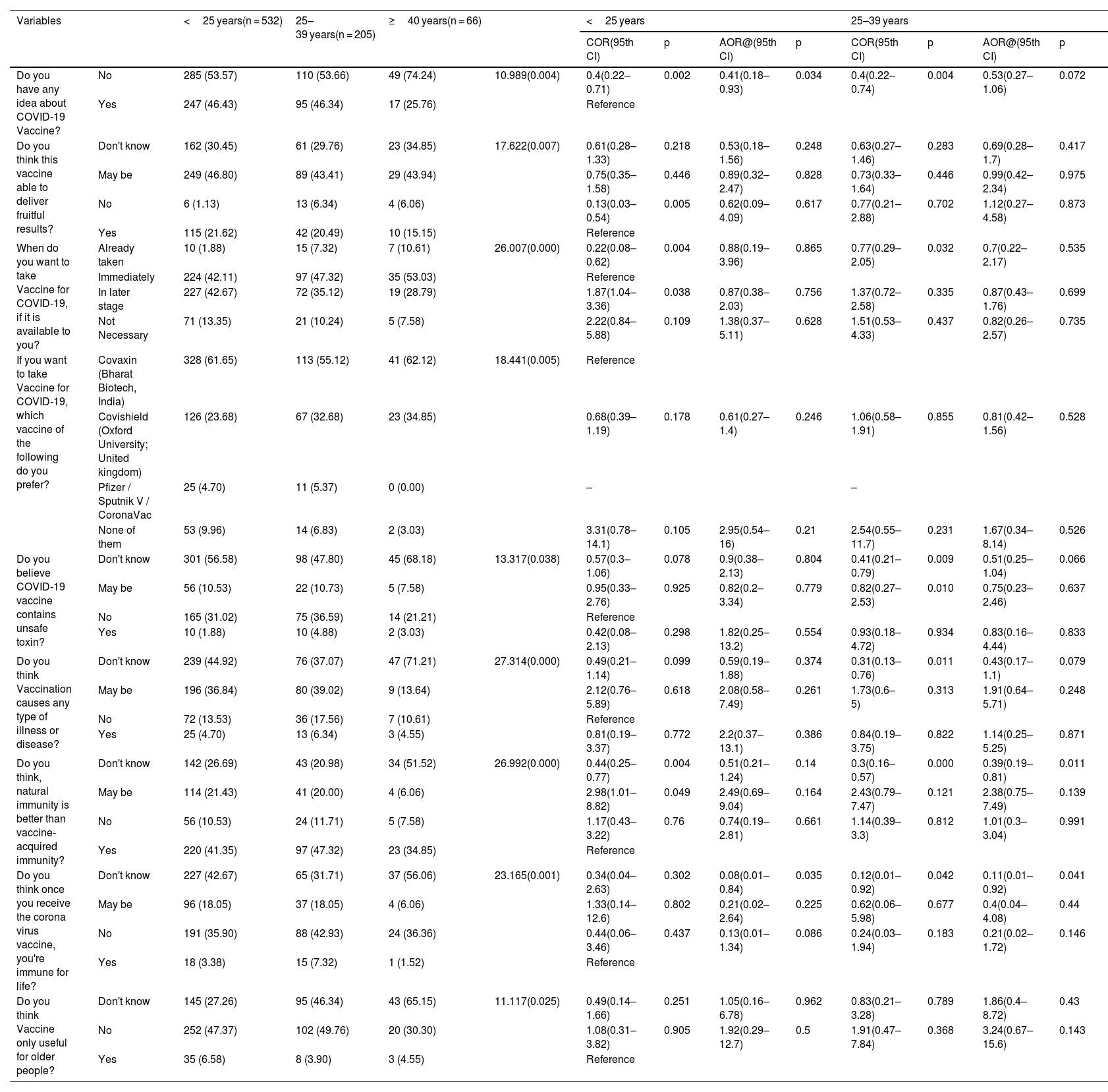
Vacunación COVID-19: Conocimientos y actitudes COVID-19 immunization: Knowledge and attitudes
More infoRapid vaccination is the only way to fight against COVID-19.Vaccine hesitancy is the major barrier against this strategy. The main objective of this cross-sectional study was to analyze COVID-19 vaccine acceptance in the general population of West Bengal (India), as well as to investigate the factors that were independently associated with people's desire to receive the vaccine.
MethodsAn online questionnaire was distributed by email, Whatsapp, and other social media platforms, and the responses were analyzed using the SPSS (Version 20) software.
ResultsWe conducted a web-based survey in West Bengal, India (N = 803), and accumulated information on individuals' desire to adopt vaccine against COVID-19, views about the virus's effectiveness, and many knowledge-based socio-demographic factors that potentially impact the overall vaccination efforts. We found that, 12.08% of participants do not believe that vaccination against COVID-19 is necessary, but among the rest of the population, 44.33% of individuals are willing to be vaccinated once the vaccine is available, whereas 39.60% of the population responded that they will not be vaccinated immediately but will do so later.
ConclusionsDespite the participants' strong vaccine willingness, our findings revealed a troubling degree of lake of awareness and insignificant scientific knowledge about the COVID-19 pandemic and its associated vaccination programme. Vaccination hesitancy is not a barrier in this survey region, but poor vaccine availability and a lack of awareness campaigns may instill unfavorable beliefs in those who refuse to be vaccinated.
Objetivos: La rapidez de la vacunación es el único modo de luchar contra la COVID-19. Las dudas sobre la vacuna constituyen la mayor barrera contra esta estrategia. El objetivo principal de este estudio transversal fue analizar la aceptación de la vacuna contra la COVID-19 en la población general de Bengala occidental (India), así como investigar los factores asociados de manera independiente al deseo de recibir la vacuna por parte de las personas.
Métodos: Se distribuyó un cuestionario online por correo electrónico, Whatsapp, y otras plataformas de redes sociales, y se analizaron las respuestas utilizando el software SPSS (Versión 20).
Resultados: Realizamos una encuesta basada en web en Bengala occidental, India (N= 803), y acumulamos la información sobre el deseo de las personas de recibir la vacuna contra la COVID-19, las opiniones sobre la efectividad del virus, y muchos factores sociodemográficos basados en el conocimiento que tienen un impacto potencial en los esfuerzos globales sobre vacunación. Encontramos que el 12,08% de los participantes no creen en la necesidad de la vacunación contra la COVID-19 pero, entre el resto de la población, el 44,33% de los individuos desean ser vacunados una vez que se disponga de la vacuna, mientras que el 39,6% de la población respondió que no se vacunarían de inmediato, aunque lo harían más adelante.
Conclusiones: A pesar de la sólida voluntad de los participantes por la vacuna, nuestros hallazgos revelaron un grado preocupante de falta de concienciación y conocimiento científico insignificante acerca de la pandemia de COVID- 19 y su programa de vacunación asociado. Las dudas sobre la vacuna no son una barrera en la región de esta encuesta, pero la poca disponibilidad de la vacuna y la falta de campañas de concienciación puede infundir creencias desfavorables en aquellas personas que rechazan recibir la vacuna.








